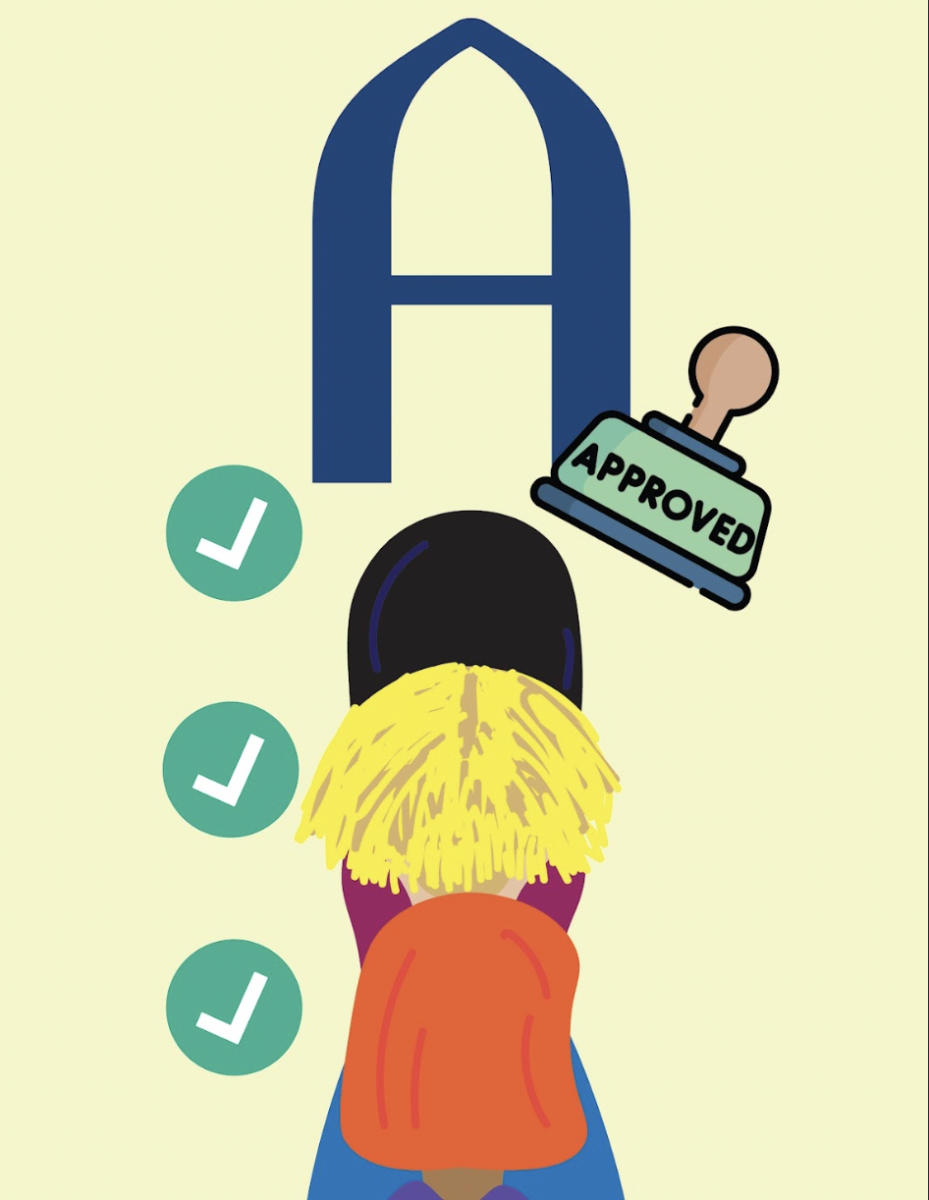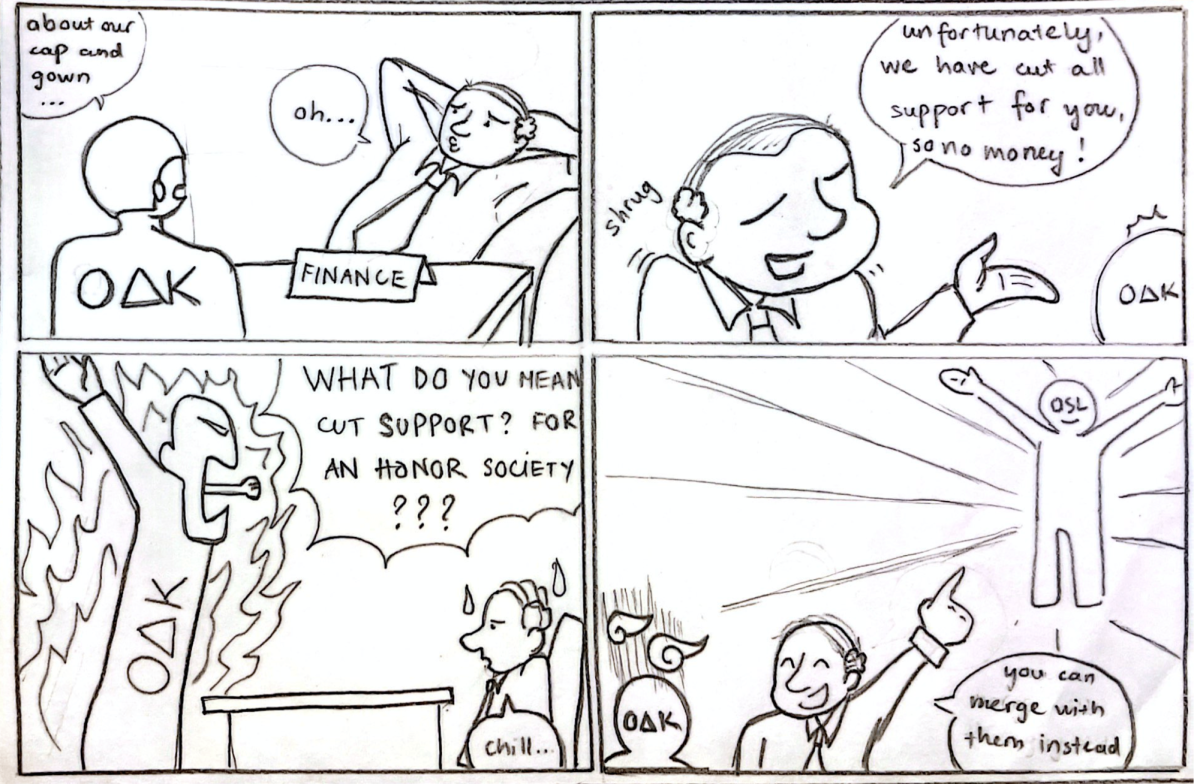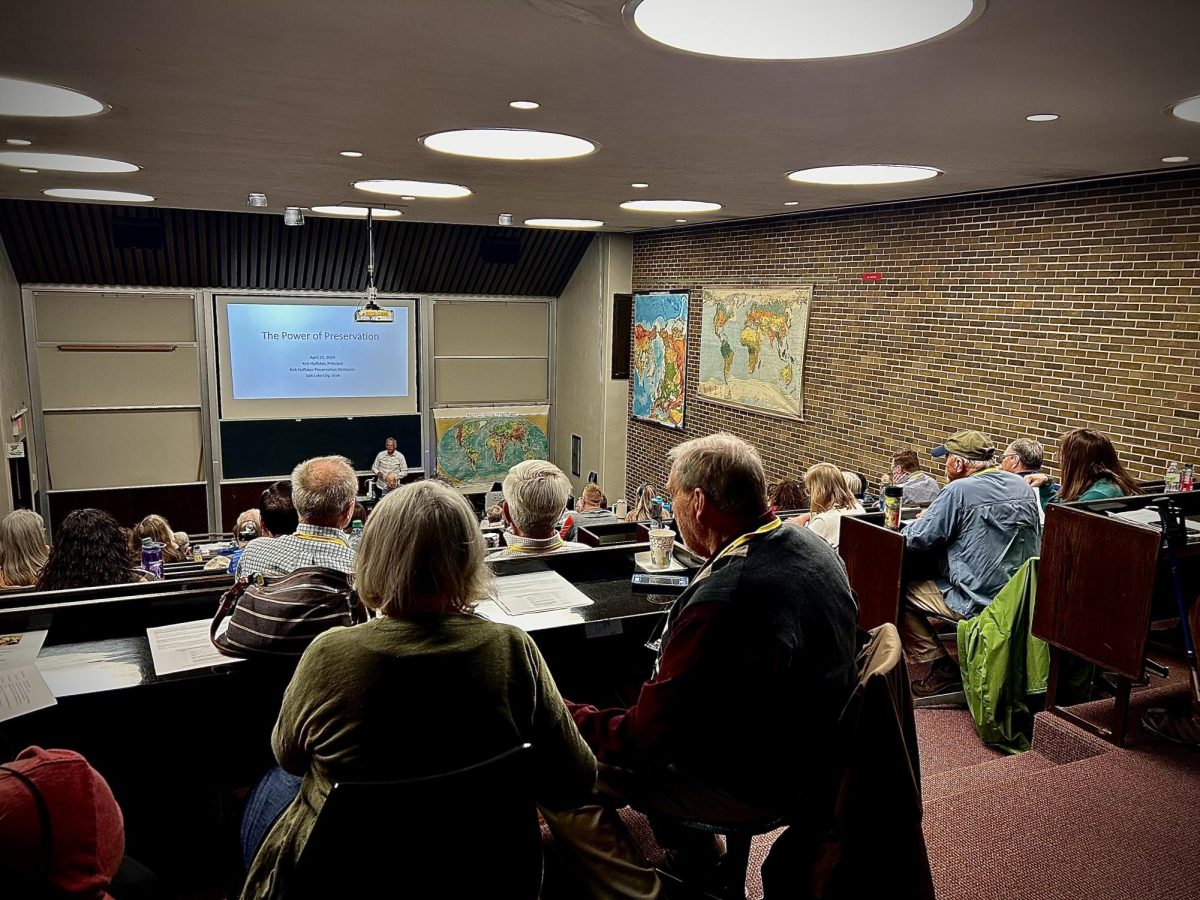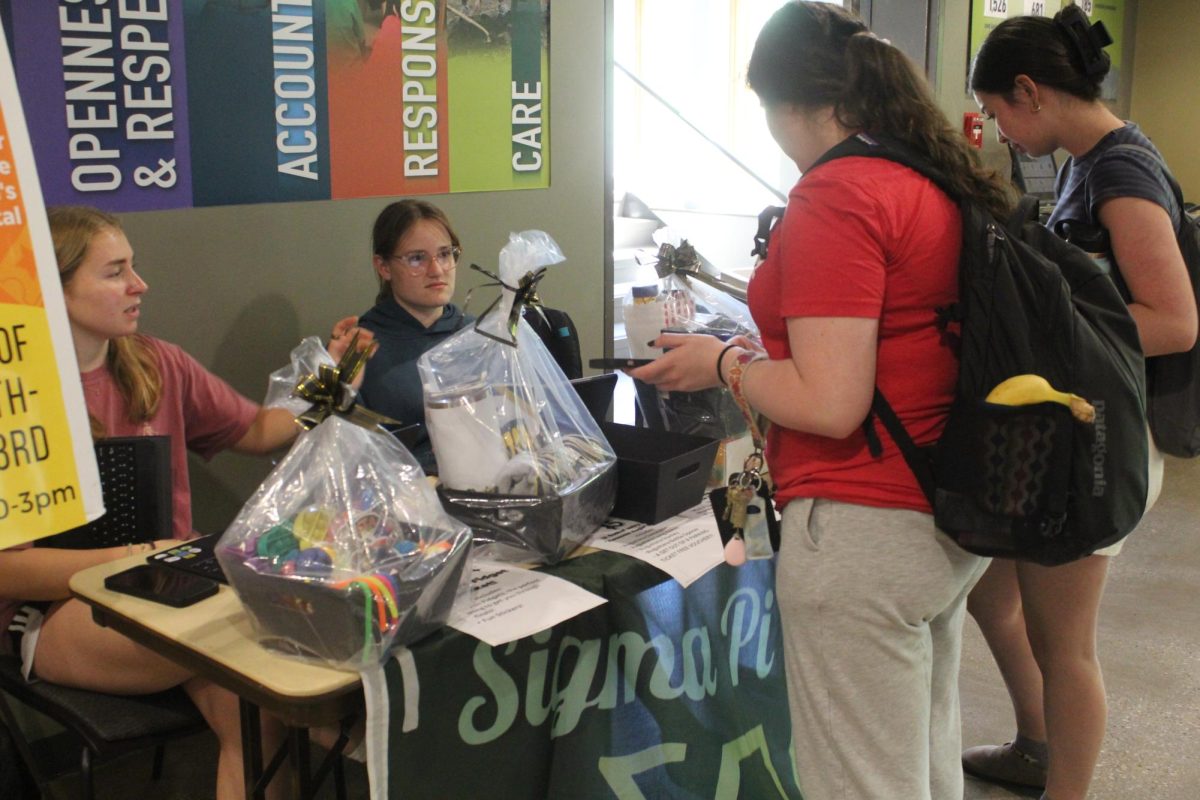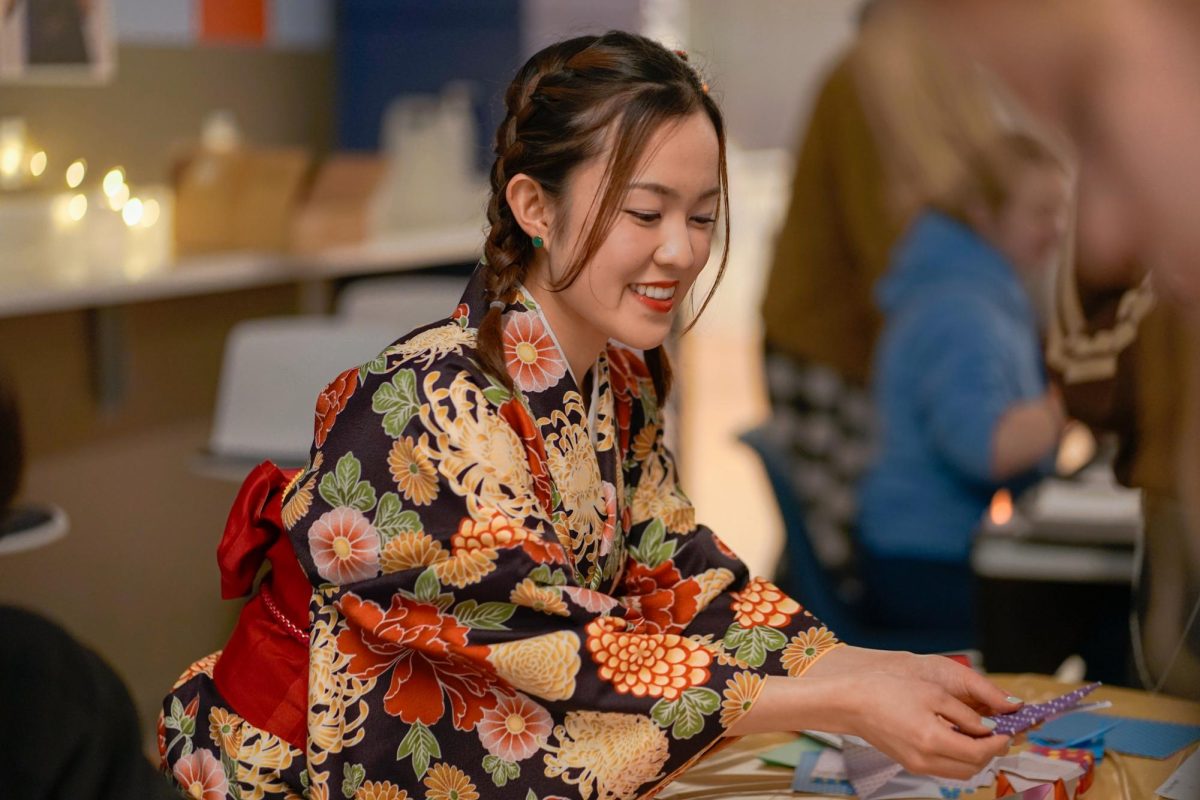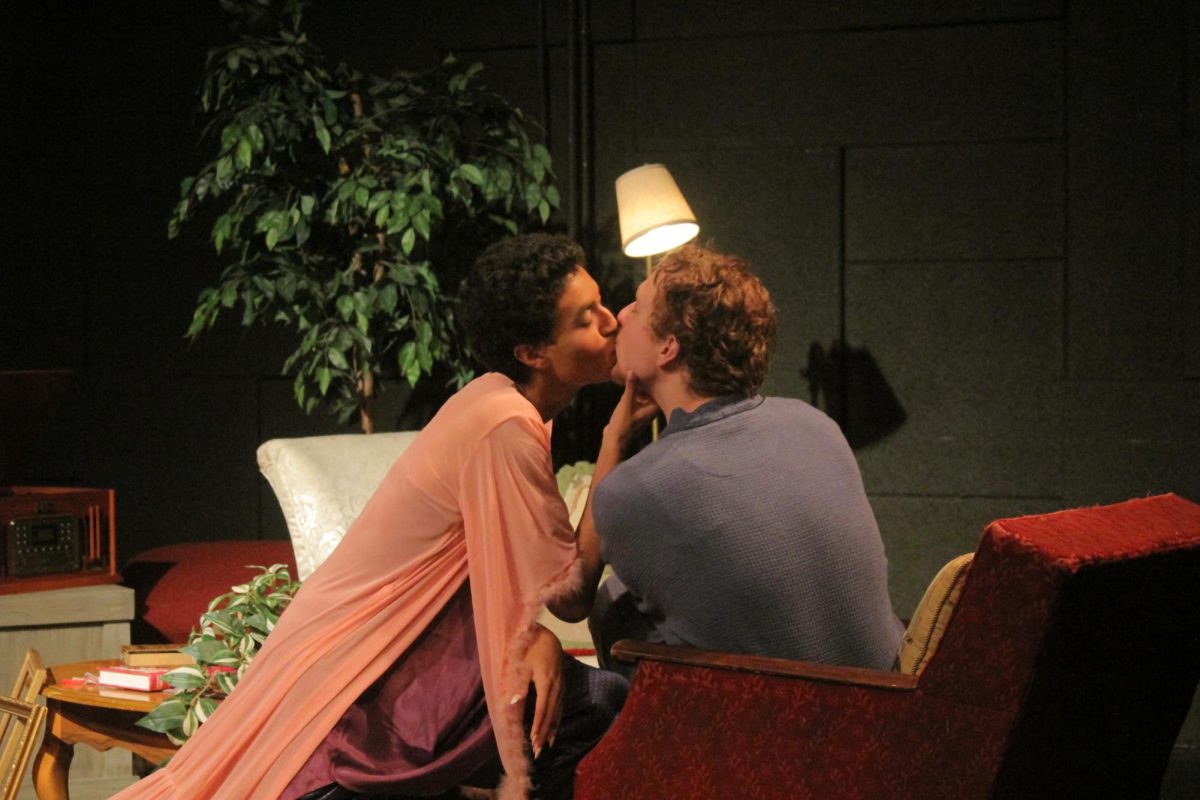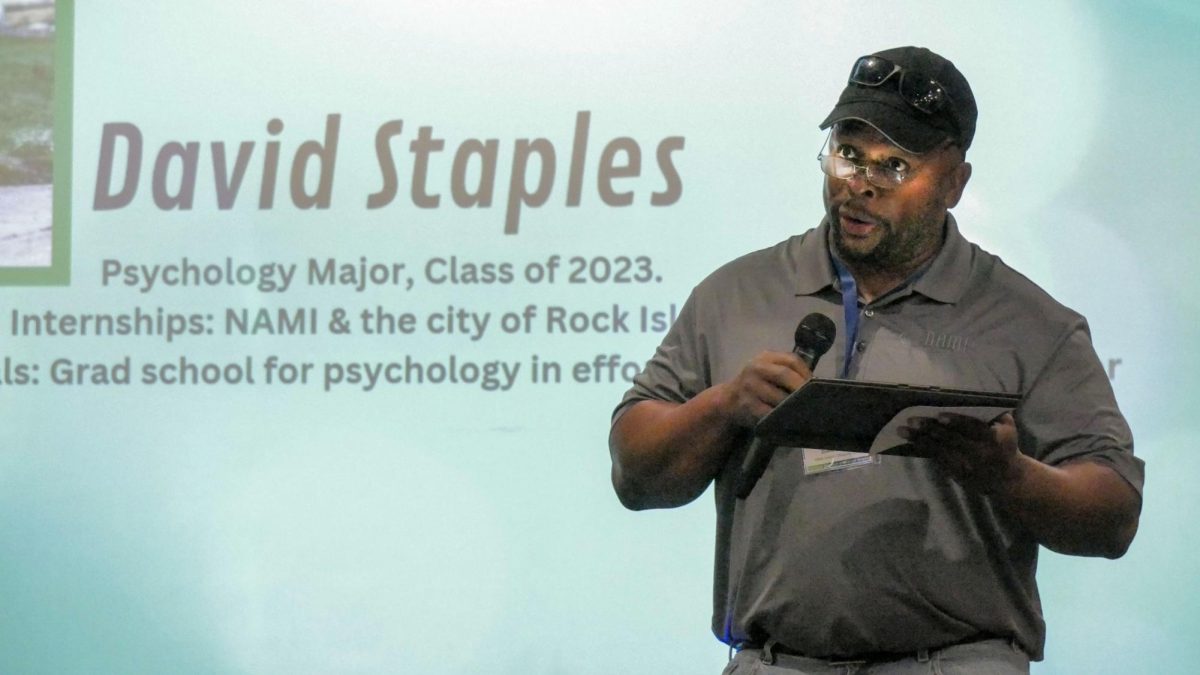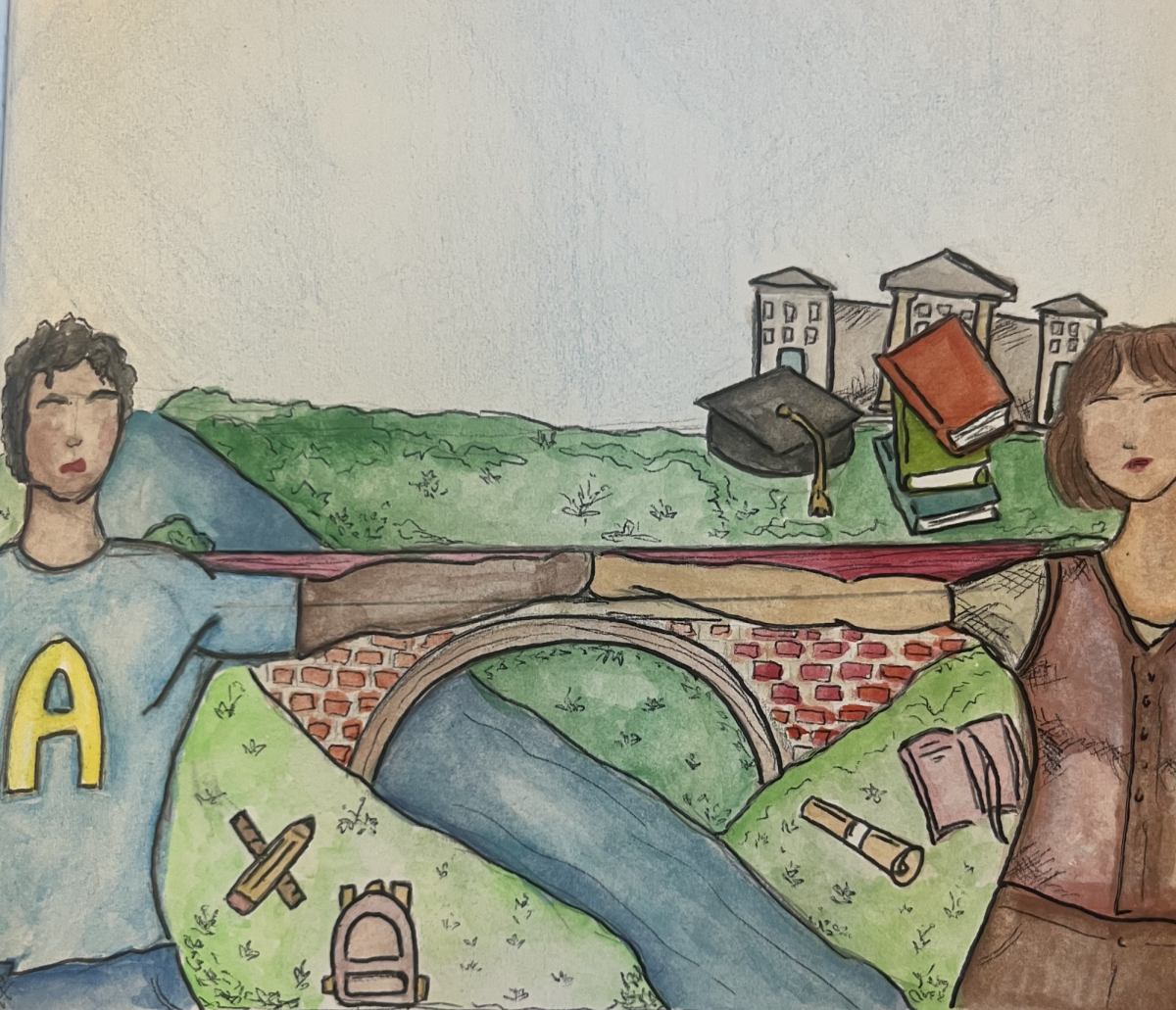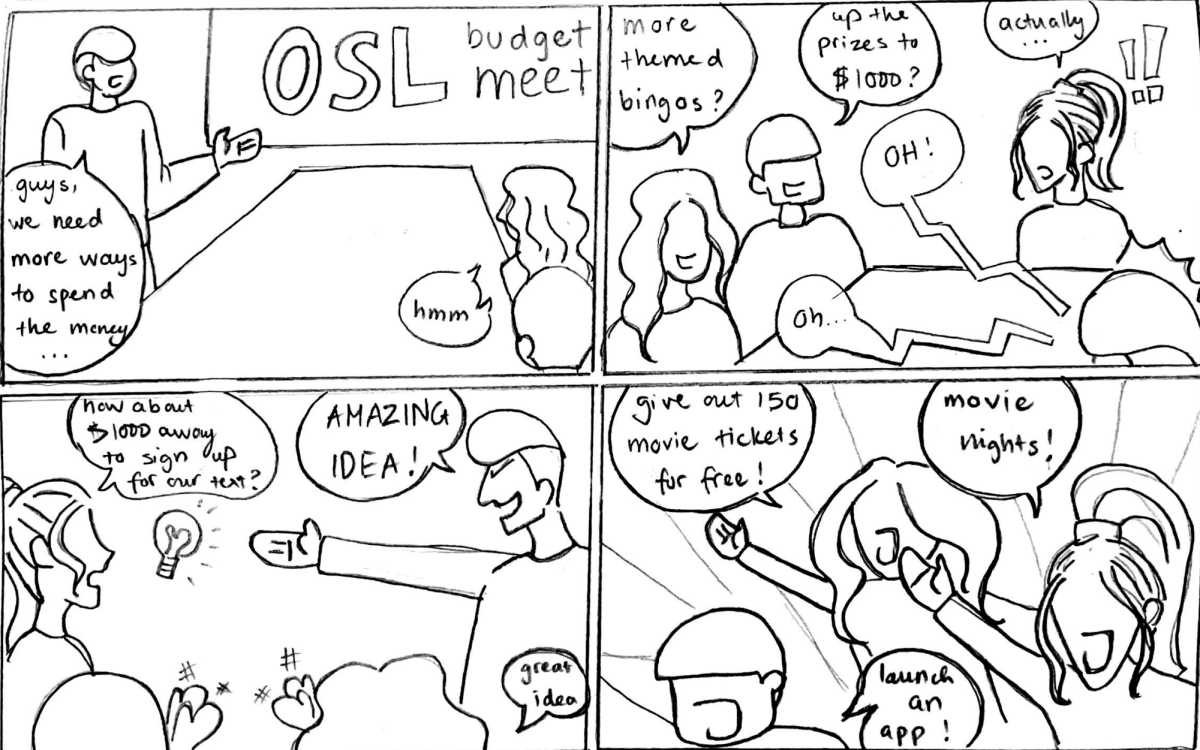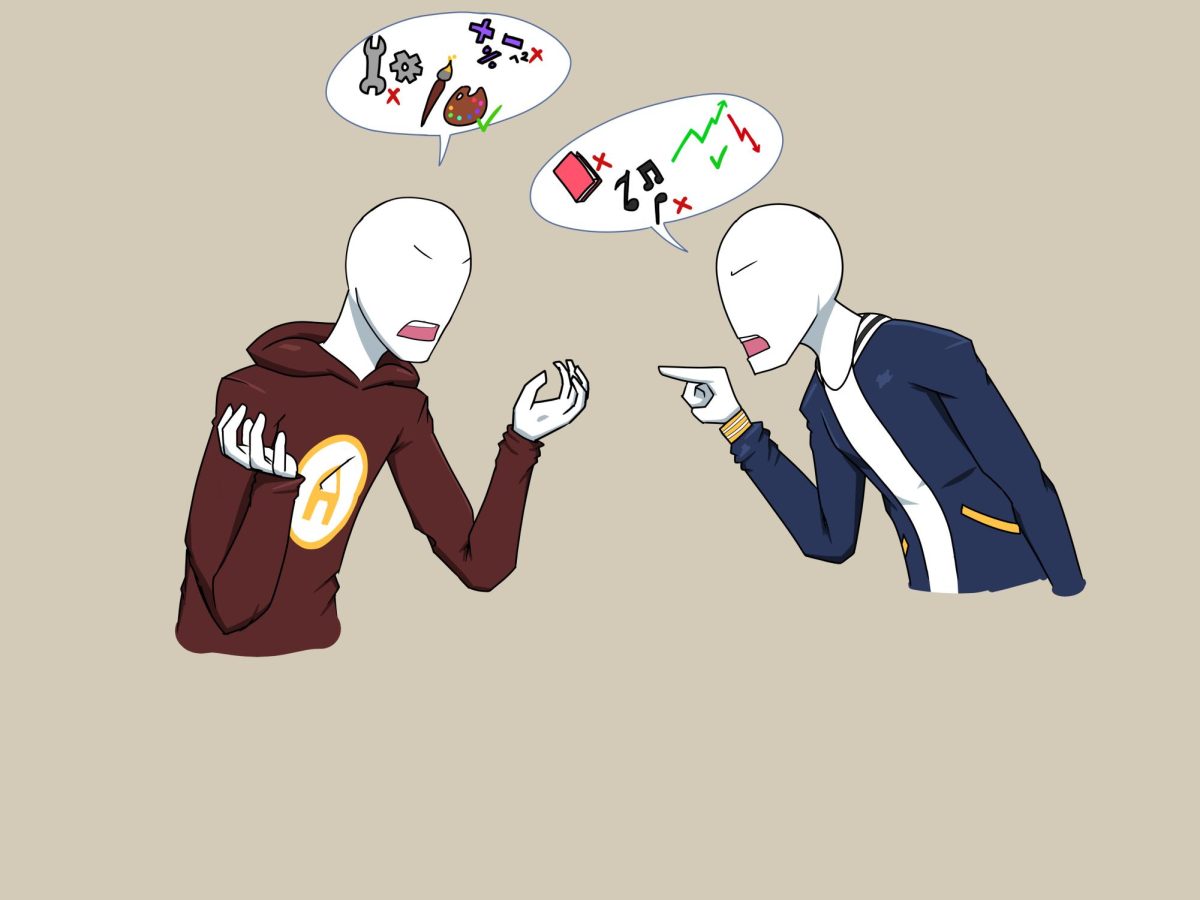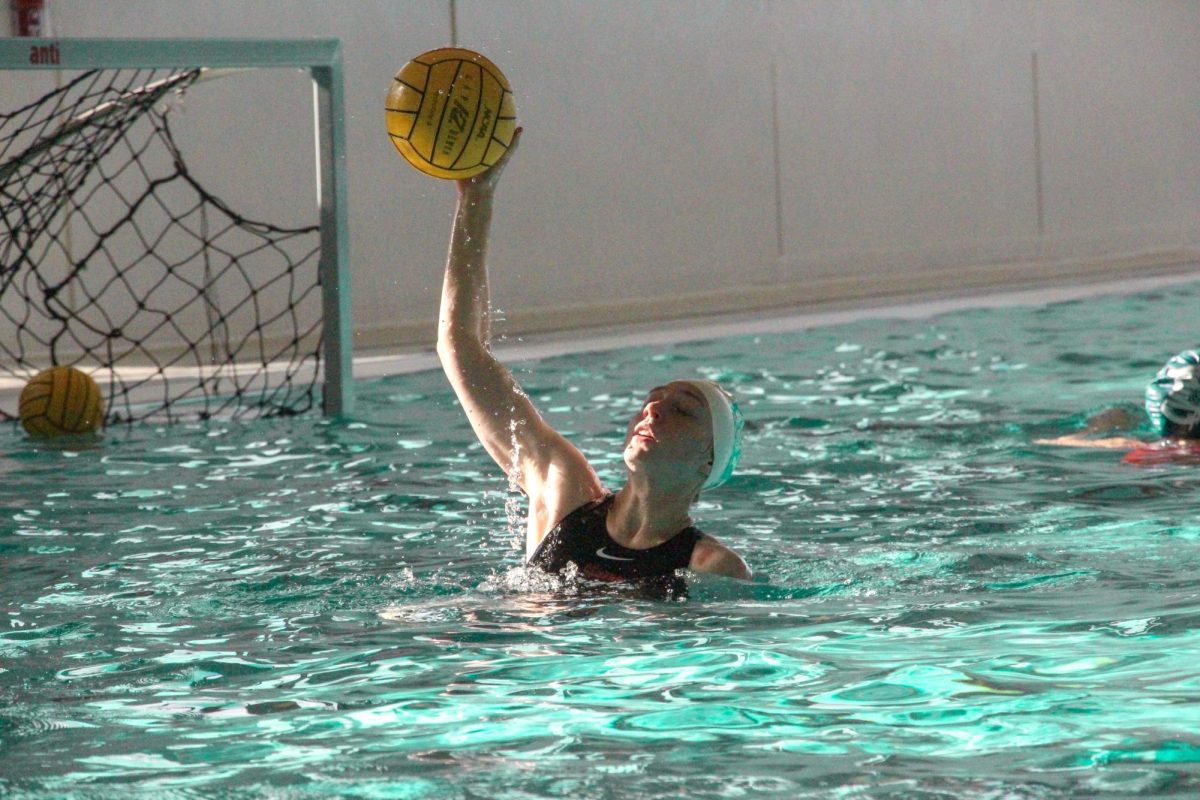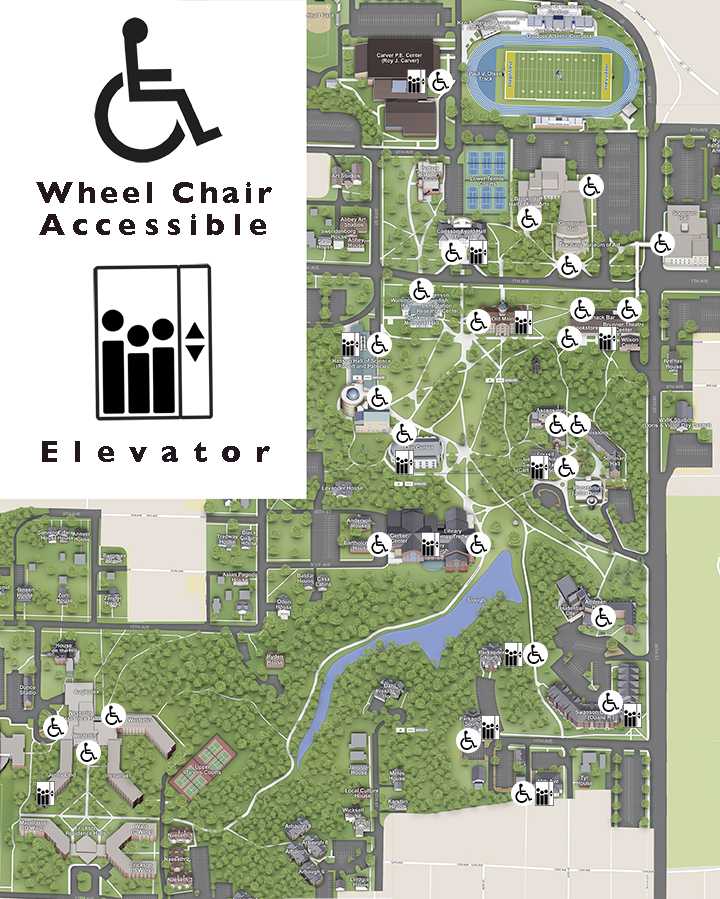The terrain of Augustana is not a mystery, there are hills everywhere. Students, staff, and faculty all deal with the strenuous walks around campus, but for students overcoming physical hardships, the terrain may be even more difficult to commute on.
“From my experience as a student, I can say that the campus definitely has an issue with accessibility, but not because of our facilities,” Aaron Hollatz, junior, said. “The unfortunate reality is that Augustana is built on the side a hill, and nothing can change that. But more can still be done.”
Hollatz and many other students, staff, and faculty members feel that Augustana is still having a hard time being accessible to students who have a physical disability, both permanent and temporary.
“I’ve noticed that while we seem to have some basic supports in place, they are often inconvenient or unreliable for those who need them,” Lucas Street, director of the reading/writing center, said.
The basic supports for people dealing with physical disabilities include all-access doors, which can be opened automatically by pressing a button, and elevators. Yet, even the all-access doors don’t always work.
“One small example is the automatic door push plates, which only seem to work about half the time I use them, or door buzzers accessible entrances that sometimes don’t actually buzz,” Street said.
Monica Metscaviz, who is the catering supervisor at Augustana, also mentions that the all-access doors rarely work for her when they deliver food on campus.
Dean Campbell states that there is a process ready to fix issues that arise with the all-access doors.
“I am not sure we are getting these complaints effectively,” Dean Campbell said. “If there are concerns let facilities know. We do want those working.”
Dean Campbell mentions that over the years when buildings are renovated or built that Augustana has included accessible additions.
“Periodically we tour campus, us administrators, and try to figure out how to make it as accessible as the terrain will allow,” Dean Campbell said.
Most buildings on campus do have ramps and all-access doors available as well as elevators, but for some the hardships still persist.
“The foundation that we are on is so steep,” Haley Clebanoff, sophomore, said. Clebanoff mentions that inclines have made it difficult for individuals on crutches or in wheelchairs to get around.
“My biggest thing is going from Evald to Old Main,” Clebanoff said. “It is a steep rocky path that leads right to the street.”
Metscaviz also mentions that the Denkmann ramp is very narrow and steep with the sidewalk being uneven.
Grace Carpenter, first-year, is a part of Best Buddies and she has found it difficult to hold venues with all the buddies on campus.
“There are quite a few buddies with mobility, handicapped, issues and our campus isn’t the best,” Carpenter said. Carpenter mentions that the Gavel rooms and Evald work well for venues because of direct access from the road and the access to elevators, but the program avoids center campus because of the inclines.
Events go for hours, but the students who attend Augustana with mobility issues have to deal with the lack of residential hall access.
“Dorms still remain inaccessible beyond the first floor for students with physical disabilities,” Hollatz said.
Dean Campbell says that every residence hall is accessible by the first floor then it depends after that if more levels are available.
“The natural environment is one thing, and it can’t exactly be helped, but even in the most recently renovated residence hall there is only one wing with wheelchair accessibility,” Ashtyn King, first-year, said.
In Westerlin the J-wing has elevator access but the rest of the building only has first-floor access for physical disabilities.
“There is a lot of times where individuals with physical disabilities can’t be with a crowd,” Clebanoff said. “They can get close but they are never there with everybody else.”
Clebanoff and other students want to see more inclusion for students to be able to access residential hall buildings more easily.
“Eventually I would like to see each of Augustana’s main dorms and TLA structures retrofitted with elevators to allow students with physical disabilities to move freely about the buildings to visit friends and utilize facilities on the upper floors,” Hollatz said.
Dean Campbell mentions that construction will be done to Bergendoff as well as an extension to Hanson.
“If students, staff, and faculty come to us with reasonable ideas on how to make campus more accessible we can do it,” Dean Campbell said.
Currently students with temporary injuries have found solace in the medical car that runs on campus to take them to events and classes. Some students wish to see more hours and open on weekends, but to Dean Campbell that was not the intention of the medical car. The medical car was started in the 1990’s to offer medical assistance due to the absence of any clinic on campus.
“It was really created in a sense to be better than an on-campus clinic would of done because we can take students to anywhere, any specialist, that we wouldn’t been able to with a clinic,” Dean Campbell said. “It was never the intention to take students from class to class.”
Dean Campbell mentions that over the years the drivers had some down time and started to help out whenever they can, but the number one priority still stands with getting students to medical facilities off campus.
Dean Campbell thinks a service to get students from class to class “would be a difficult service to provide”.
“Change is always slow,” Deborah Bracke, associate professor of education, said. “I think we can change our minds faster than we can actually change things physically. The accessibility on campus although not ideal is much better than I started.” Bracke has been teaching at Augustana for 26 years.
Bracke loves to hear that students are concerned about other individuals’ welfare.
Bracke does point out that in the Wilson Center there are a lot of ads and student events posted on the stairs and she is concerned that someone bound to a wheelchair would miss out on Augustana life. Bracke mentions thinking about visit days and how grandparents and other visitors might face difficulties in having to get around campus.
“My grandmother from California has never visited Augie because of how terrible it is to get around in a wheelchair around campus, especially the dorms which have no elevators,” Alaina Hofmann, senior, said.
Admissions have created a special training program for students to help assist individuals with physical accommodations. Students who are 21 are able to drive golf carts during visit days. This way visitors can avoid the terrain.
Anna Castro, manager of campus experience, mentions that students can fill out an online form in advance of a visit day and admissions will help accommodate the individual.
Over the past school year, Castro says only one prospective student who has a physical disability visited campus.
“Honestly, usually, people ask for accommodations that are more towards parents than the actual student,” Castro said. “We always try to make an appointment during their visit with Dean Campbell’s office so they can take about accommodations,” Castro said.
Kristina Kosnick, assistant professor of French, has had trouble inviting guests to campus for events because she doesn’t know what is accessible.
“I didn’t know where to get that information and I keep wondering do I not know where to go or do we just not have that,” Kosnick said.
Other students and faculty members have spoken about the lack of transparency of where access points are located.
Dean Campbell led me to an interactive map on the Augustana web page which shows what buildings have gender-inclusive bathrooms, braille signs, flashing lights, and limited access.
Yet, the map does not show where all-access doors are located on buildings and which buildings have elevators.
“We are serving around 175 students who have disabilities,” Dean Campbell said. “A lot of those are disabilities we wouldn’t see. We work with people on a case by case basis.”
Dean Campbell mentions that the terrain of Augustana might dissuade people from attending.
“I don’t think Augustana attracts students with physical disabilities,” Bracke said.
Dean Campbell, Brake, Kosnick, and others all want to see continued progress of accessibility on campus.
Street would like to see an accessibility audit and commit to implementing the findings so that it fully supports the students and ensures with all federal compliances.
“I worry that when people with disabilities visit, whether prospective students, faculty, or staff, the implicit message they receive is “‘We don’t want you here’” which is of course not true,” Street said.
The graphic above done by Tony Dzik and Kevin Donovan.
Clarification there is an elevator in Denkmann.
Uphill Battle: Dean, staff, students, talk accessibility at Augie
April 12, 2018
